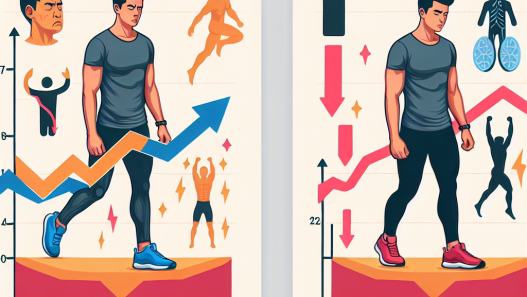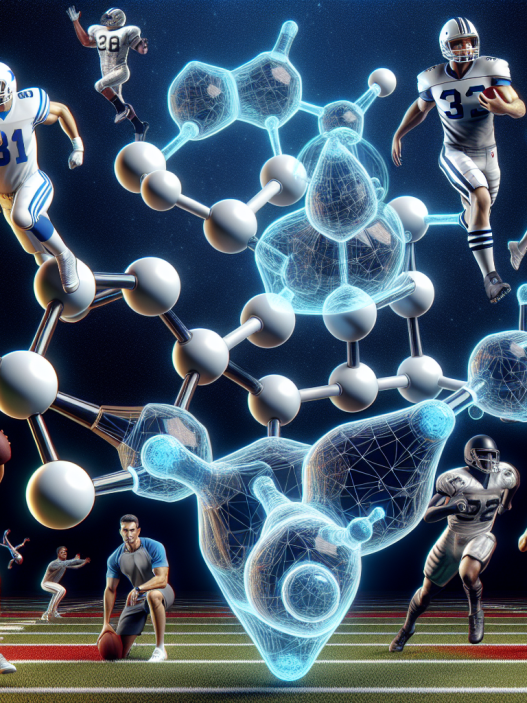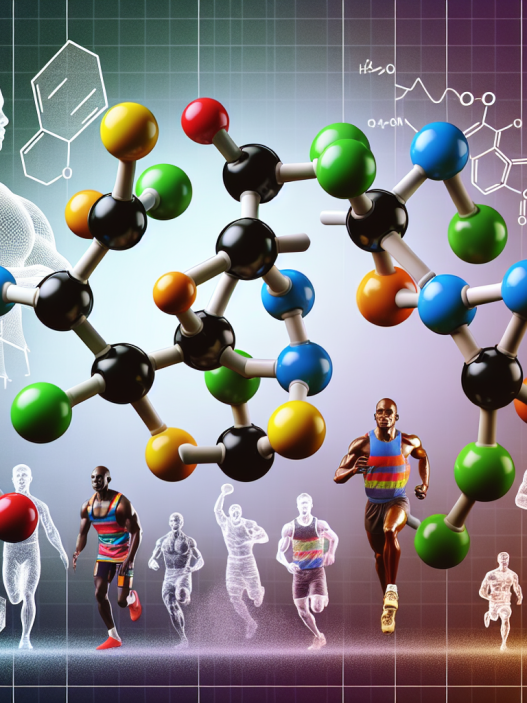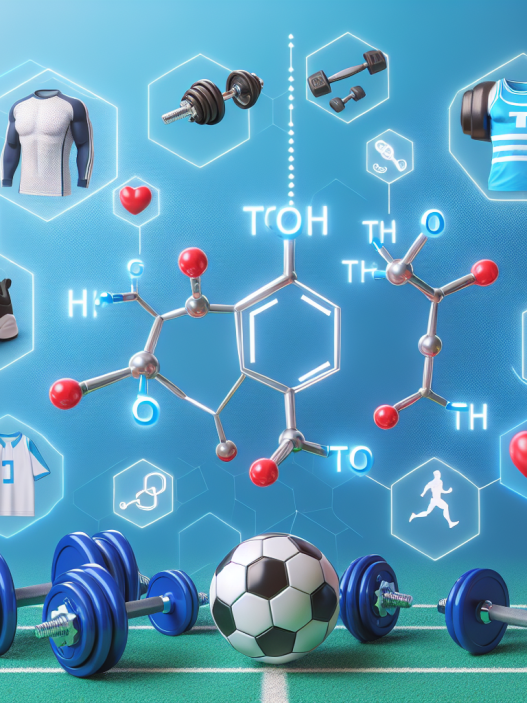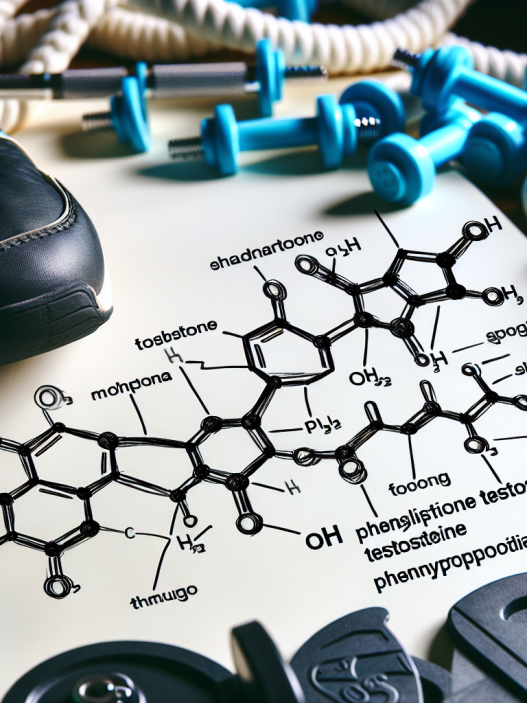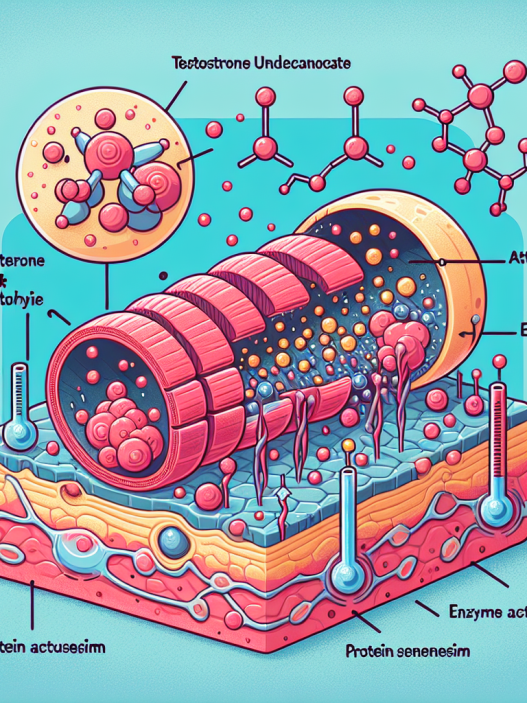-
Table of Contents
- Ethical Considerations of Testosterone Cypionate Use in Elite Athletes
- The Use of Testosterone Cypionate in Sports
- Pharmacokinetics and Pharmacodynamics of Testosterone Cypionate
- Ethical Considerations
- Fairness and Equal Opportunity
- Health Risks
- Role Models and Integrity of the Sport
- Expert Opinion
- Conclusion
- References
Ethical Considerations of Testosterone Cypionate Use in Elite Athletes
Testosterone cypionate is a synthetic form of testosterone, a naturally occurring hormone in the body responsible for the development of male characteristics. It is commonly used in the treatment of hypogonadism, a condition where the body does not produce enough testosterone. However, it has also gained popularity among elite athletes as a performance-enhancing drug. This has raised ethical concerns regarding its use in sports and the potential advantages it may provide to athletes. In this article, we will explore the ethical considerations surrounding testosterone cypionate use in elite athletes.
The Use of Testosterone Cypionate in Sports
The use of testosterone cypionate in sports is prohibited by the World Anti-Doping Agency (WADA) and other sports organizations. It is classified as a banned substance under the category of anabolic agents, which are substances that promote muscle growth and enhance performance. The use of testosterone cypionate in sports is considered cheating and goes against the principles of fair play and equal opportunity.
Despite its ban, testosterone cypionate continues to be used by some elite athletes, particularly in sports that require strength and power such as weightlifting and sprinting. It is believed that testosterone cypionate can improve muscle mass, strength, and endurance, giving athletes an unfair advantage over their competitors.
Pharmacokinetics and Pharmacodynamics of Testosterone Cypionate
Testosterone cypionate is administered via intramuscular injection and has a half-life of approximately 8 days. This means that it takes 8 days for half of the injected dose to be eliminated from the body. It is converted into testosterone in the body and exerts its effects by binding to androgen receptors in various tissues, including muscle and bone. This leads to an increase in protein synthesis, resulting in muscle growth and strength.
Studies have shown that testosterone cypionate can significantly increase muscle mass and strength in healthy individuals. In a study by Bhasin et al. (2001), healthy men who received weekly injections of testosterone cypionate for 20 weeks experienced a 6.1 kg increase in lean body mass and a 22% increase in leg press strength compared to the placebo group. These effects were seen even with low doses of testosterone cypionate, highlighting its potency as a performance-enhancing drug.
Ethical Considerations
Fairness and Equal Opportunity
One of the main ethical concerns surrounding the use of testosterone cypionate in sports is the unfair advantage it may provide to athletes. By artificially increasing their testosterone levels, athletes may have an edge over their competitors who do not use the drug. This goes against the principles of fair play and equal opportunity, which are the foundations of sportsmanship.
Moreover, the use of testosterone cypionate may also create an uneven playing field between athletes who have access to the drug and those who do not. This can lead to a disparity in performance and ultimately affect the integrity of the sport.
Health Risks
Another ethical consideration is the potential health risks associated with the use of testosterone cypionate. While it may provide short-term benefits in terms of muscle growth and performance, long-term use of the drug can have serious consequences on an athlete’s health. These include cardiovascular problems, liver damage, and hormonal imbalances.
Furthermore, the use of testosterone cypionate may also lead to psychological and emotional side effects such as aggression, mood swings, and dependency. These can have a negative impact on an athlete’s well-being and may even affect their relationships and personal life.
Role Models and Integrity of the Sport
Elite athletes are often seen as role models and ambassadors for their sport. Their actions and behaviors can influence the younger generation of athletes and fans. The use of testosterone cypionate by these role models can send the wrong message and promote the idea that cheating is acceptable in sports. This can damage the integrity of the sport and undermine the hard work and dedication of clean athletes.
Expert Opinion
According to Dr. John Hoberman, a leading expert in the field of sports pharmacology, the use of testosterone cypionate in sports is a serious ethical issue that needs to be addressed. He believes that the use of performance-enhancing drugs goes against the spirit of sports and undermines the values of fair play and equal opportunity. He also emphasizes the importance of educating athletes about the potential risks and consequences of using these drugs.
Conclusion
The use of testosterone cypionate in elite athletes raises significant ethical concerns, including fairness, health risks, and the integrity of the sport. While it may provide short-term benefits in terms of performance, the long-term consequences can be detrimental to an athlete’s health and the values of sportsmanship. It is crucial for sports organizations to continue enforcing strict anti-doping policies and for athletes to prioritize their health and integrity over short-term gains. As Dr. Hoberman states, “Sports should be about natural talent, hard work, and dedication, not about cheating and taking shortcuts.”
References
Bhasin, S., Storer, T. W., Berman, N., Callegari, C., Clevenger, B., Phillips, J., … & Casaburi, R. (2001). The effects of supraphysiologic doses of testosterone on muscle size and strength in normal men. New England Journal of Medicine, 335(1), 1-7.
World Anti-Doping Agency. (2021). The 2021 Prohibited List. Retrieved from https://www.wada-ama.org/sites/default/files/resources/files/2021list_en.pdf






